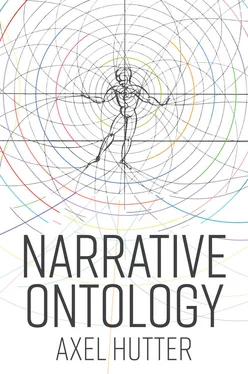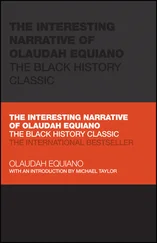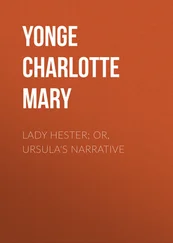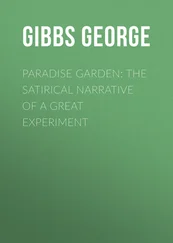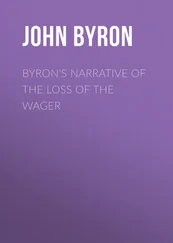Schiller argues that the bread-and-butter scholar abuses university freedom for private purposes of comfort: ‘How pitiable the man who wants and makes nothing higher with the noblest tools, science and art, than what a day-labourer does with the most common! Who in the realm of perfect freedom carries with him the soul of a slave!’ (323). In the revolutionary spirit of 1789, Schiller opposes such a self-imposed immaturity with the ‘philosopher’, who is distinguished from the scholar not firstly by the content, but rather by the form, of his knowledge: ‘Not what he does but how he does it distinguishes the philosophical mind’ (325).
It is remarkable that Thomas Mann, more than a hundred years later, considers it advisable to use Schiller’s programmatic distinction between scholarship and philosophy as a model for understanding his own intellectual profile. Thomas Mann’s ‘man of letters’, modelled upon the philosophical mind , is accordingly designated as an ‘intellectual buccaneer’ who rebels against the pedantic narrow-mindedness associated with Schiller’s ‘scholar’. Thomas Mann’s most elegant, and at the same time most fitting, expression for the philosophical mind is certainly ‘artist of knowledge’ (1993, 159).
An artist of knowledge is demarcated from two sides. The literary philosopher or philosophical literary figure, on the one hand, whom Thomas Mann takes as a model in his own thought, is distinguished critically, as an artist of knowledge, from the academic pedantry of the scholar; on the other hand, this figure is distinguished just as clearly, however, as an artist of knowledge , ‘from art in the naïve and trusting sense’ – indeed ‘by means of consciousness, spirit, moralism, critique’ (159). The ‘literary gift’ is thus, for Thomas Mann ‘formulated most succinctly’ with the following properties: ‘the will for the unconditional, the disgust for admission and corruption, a derisive or solemnly accusatory and judgemental insistence on the ideal, on freedom, on justice, reason, the good and human dignity’ (158).
While Thomas Mann may thus take as model in his thinking and writing the ‘philosophical’ protest against the textbook figure, the ‘disgust for admission’, the question nonetheless remains concerning why philosophy today for its part may find an ally in the literature of Thomas Mann. Why should the concept of an artist of knowledge , which Thomas Mann develops at the beginning of the twentieth century in the original adaptation of a thought from the eighteenth century, be taken as a model for philosophy at the beginning of the twenty-first century?
The answer lies close at hand, for philosophy is never immune to the pedantry of the academic figure, to the self-righteous narrowness of a banality in conformity with rules. For this reason, it is an ongoing duty for philosophy to take measure, again and again in a new and original way, from the artists of knowledge , in order to be reminded of its own original task. Thomas Mann is a model, moreover, because he at all times maintains an ironic distance from the scholars and the specialists of academic philosophy: ‘I do not know the specialized bourgeois philosopher, I have not read him. I have not got beyond Schopenhauer and Nietzsche – and by my honour, they were not bourgeois’ (1987, 101).
Yet the bourgeois specialism of academic philosophy from which Thomas Mann distances himself ironically and critically stands in a hidden alliance with the hegemony of an ontology of meaningless being. The narrow-minded insistence on things according to the rule and the academic is beholden to silent and meaningless being, which, while it may not be understandable, can be categorized. For this reason, the bourgeois philosopher (like Schiller’s bread-and-butter scholar) is instinctively hostile to the ‘artist of knowledge’ since the latter is devoted to the intellectual adventure of freedom and meaning, which by nature can hardly be ‘fixated’, and thus cannot become an object of a regulated school lesson.
Precisely for this reason, the alliance with a ‘literature of knowledge’ can remind philosophy of its original form and task. Kant characterizes this form and task as the cosmopolitan concept of philosophy, which he distinguishes from its mere academic concept. According to its cosmopolitan concept, ‘philosophy is the science of the relation of all cognition to the essential ends of human reason ( teleologia rationis humanae )’. In other words, ‘A cosmopolitan concept here means one that concerns that which necessarily interests everyone’ – and this is ‘nothing other than the entire vocation of human beings’ (1998, 694–5). Philosophy in accordance with its cosmopolitan concept is thus essentially human self-knowledge .
Schopenhauer’s famous polemic against the philosophical bread-and-butter scholar and university instructor of his time takes up this central fundamental Kantian distinction by accusing the academic philosopher of being indifferent towards the specific austerity of human self-knowledge required by the cosmopolitan concept of philosophy: ‘For normally a teacher of philosophy would be the last person to whom it would occur that philosophy could in effect be dead earnest.’ The actual earnestness of philosophy lies for Schopenhauer, however, not in fixating a being, but rather in the interpretative understanding of a meaning: ‘in seeking a key to our – as enigmatic as it is precarious – existence’ (2014, 127).
Precisely because the ‘bread-and-butter scholar’ grasps everything intellectual from the bourgeois viewpoint of success, of social recognition and convenience, subjectivity cannot appear in his science since he grasps this science from the outset not in the Socratic sense of self-knowledge but, rather exclusively in the selfish sense of private narrow-mindedness, and thus obscures it. As an intellectual buccaneer, Nietzsche sticks his finger right in this wound of bourgeois scholarship when he characterizes his own philosophy by the freedom of self-knowledge – that is, by the ‘lack of ability to keep silent about the universal secret, and the irresponsible tendency to see what no one wants to see – himself’ (1986, 44). Precisely this ‘irresponsibility’ is the only responsible way to follow the Delphic commandment and to leave the bridge behind – or, still more, to leave the land behind.
Thomas Mann, who places importance on not having ‘got beyond’ Schopenhauer and Nietzsche, can for this reason serve as a model for a philosophy that seeks to emancipate itself from its mere academic concept. He is a model artist of knowledge less as a result of what he does than of how he treats what he does. A philosophical critique of reason and language can achieve its aim of fundamentally shifting our understanding of the world and ourselves only insofar as it first succeeds, as a precondition for everything further, in shifting how something is understood to begin with. For this reason, the decision to turn to Thomas Mann for orientation is by no means extrinsic to the philosophical path of thought, but rather a methodological consequence of the intent to revolutionize a ‘way of thinking’ by orienting to the ‘how’ of the linguistic and narrative understanding of meaning.
The Enigma of Human Being
The second reason this philosophical enquiry seeks to connect with Thomas Mann is that he accommodates a narrative ontology of meaning by contemplating, in his way, the same fundamental question . That is why the present essay will have less to say about Thomas Mann and his work and more about what Thomas Mann himself seeks to speak about: critical resistance to an ontology of meaningless being and the project of a narrative ontology of meaning in the interest of human self-knowledge.
Читать дальше
